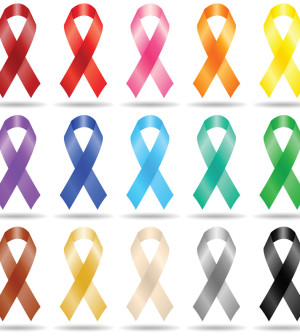- Could Your Grocery Store Meat Be Causing Recurring UTIs?
- Are You Making This Expensive Thermostat Error This Winter?
- Recognizing the Signs of Hypothyroidism
- 10 Strategies to Overcome Insomnia
- Could Artificial Sweeteners Be Aging the Brain Faster?
- Techniques for Soothing Your Nervous System
- Does the Water in Your House Smell Funny? Here’s Why
- Can a Daily Dose of Apple Cider Vinegar Actually Aid Weight Loss?
- 6 Health Beverages That Can Actually Spike Your Blood Sugar
- Treatment Options for Social Anxiety Disorder
Estrogen for Vaginal Symptoms OK for Breast Cancer Survivors: Experts

Women who’ve battled or survived an estrogen-dependent form of breast cancer often encounter vaginal symptoms linked to their treatment, especially around the time of menopause.
Now, new guidelines from the American College of Obstetricians and Gynecologists (ACOG) advise that the use of symptom-relieving estrogen therapy is warranted for these patients.
“These new recommendations are especially important and helpful because they provide the patient with the information needed to make an informed decision with the input of her health care provider,” Dr. Diana Nancy Contreras, chair of ACOG’s Subcommittee on Gynecologic Oncology, said in a college news release.
One expert in women’s health explained that patients with an estrogen-dependent breast cancer often suffer vaginal symptoms linked to treatment.
“Many estrogen-dependent breast cancer treatments may bring about and exacerbate vaginal atrophy,” said Dr. Jill Rabin, who’s with Women’s Health Programs-PCAP Services, Northwell Health, in New Hyde Park, N.Y.
“Vaginal and urologic symptoms range from mild to severe and can include vaginal dryness, pain, bleeding, bacterial infections and dyspareunia [painful sex],” she noted. “These symptoms — which may arise for many women in menopause — may be multiplied for these patients in treatment and can worsen over time.
“These symptoms can have a huge impact on a woman’s quality of life — for all affected women and especially for breast cancer survivors,” Rabin added. In fact, up to a fifth of breast cancer patients “terminate or consider terminating therapies due to the severe detrimental effect that vaginal atrophy poses on their quality of life,” she said.
There’s been a concern, however, about the safety of estrogen-based therapies for women who are battling or who have survived an estrogen-linked breast tumor.
Specifically, there have been concerns about a possible link between topical (cream or lotion) estrogen therapy and recurrence of estrogen-linked breast cancers. However, current research has not confirmed such a connection, the experts at ACOG stated.
So, in its new recommendations, the group recommends that non-hormonal therapies for vaginal symptoms still be the first choice for women with estrogen-dependent breast cancer or a history of such a cancer.
However, topical estrogen therapy can now also be considered for estrogen-dependent breast cancer survivors who do not respond to non-hormonal therapies, ACOG said.
Dr. Eva Chalas is chief of gynecological oncology at Winthrop-University Hospital, in Mineola, N.Y. She said she agreed with the new recommendation.
“Non-hormonal management should be the first course of action,” Chalas said. “However, the most effective treatment remains estrogen.
“Quality of life, which includes an opportunity for sexual intimacy, is an important aspect of cancer survivorship,” Chalas explained. “Women should address the severity of symptoms with their physicians and participate in selection of therapy which yields the best quality of life. This [ACOG] document provides safe guidelines which could enhance post-treatment sexual function in many breast cancer survivors.”
The new guidelines will be published in the March issue of Obstetrics & Gynecology.
More information
The U.S. National Cancer Institute discusses menopausal hormone therapy and cancer.
Source: HealthDay
Copyright © 2026 HealthDay. All rights reserved.










